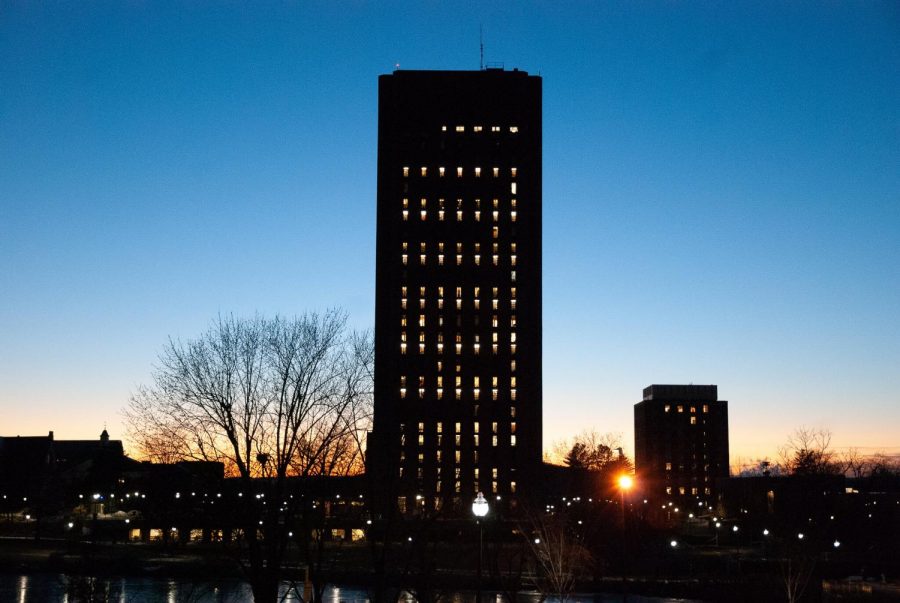It is the beginning of Pride Month, a month in which we reflect on the police brutality which gave way to the Stonewall Riots in 1969. Fifty-one years ago, when police raided the Stonewall Inn in New York City, they arrested LGBT patrons for dancing in a gay club and cross-dressing, among other “arrestable rationales.” While the detainees were outside and the police raided the rest of the inn, a crowd of party-goers and random pedestrians formed. This crowd began pelting the cops with coins, both out of disdain for the police and in support of the LGBT community. Eventually, these coins turned into rocks, and then bottles and bricks. Riots ensued and fellow Americans stood in solidarity with the LGBT community against the system which tried so hard to suppress them.
The riots acted as a catalyst for the gay liberation movement expanding the rights of the LGBT community. One year later, NYC, Chicago and Los Angeles were holding their own pride parades to commemorate the riots. Today, I, a white homosexual man, write 18 days before the fifth anniversary of marriage equality in the U.S. In light of the riots occurring across the country following the homicide of George Floyd and the beginning of Pride Month, I feel it is necessary, given my background and relative privilege, to reflect on why riots are essential for change.
Following the death of George Floyd, a series of protests have erupted across the nation. The protests began peacefully but in most cases have turned violent – some demonstrators have clashed with police, set police cars on fire, vandalised property or looted shops. This has led some supporters of the Black Lives Movement to question why rioting is necessary.
But, as Clifford Stott, an expert in crowd behavior and public-order policing explained, riots are the result of how law enforcement interacts with the crowd. If people feel that the police’s use of force against them is unjustified, then this increases their sense of “us versus them.” Shooting rubber bullets and pelting tear gas into crowds that are marching for change doesn’t mollify the situation, and instead incites violence in response.
Riots are meant to send a message which can’t be ignored or forgotten by simply changing the channel. Rioting asks for a change that should be felt, and if you’re feeling uncomfortable, then it’s working. Just because some people don’t find it necessary to riot for change doesn’t give them the right to deny others who do.
There is something we need to get straight: Looters should not be counted among the ranks of protestors and rioters. Looting undermines the ethos of the Black Lives Matter movement and throws a wrench in the domestic understanding of these riots. Rioters are protestors whose voices have been silenced — voices otherwise ignored when peacefully marching and toting signs for social change. Looters, on the other hand, are opportunistic criminals with a platform.
This movement asks us to help create a world in which a traffic stop is not synonymous with a death sentence. In 2019, 1,099 people were killed by police officers in the U.S. 24 percent of those people killed were black, despite black Americans comprising only 13 percent of the total population. Racial injustice has existed in the U.S. since its conception, from the enslavement of West Africans in 1619 to their segregation in 1960.
But it’s still not too late for change. LGBT people weren’t allowed to legally marry until 2015. We must keep demanding change and keep the foot on the gas pedal.
It’s undeniable that tensions are high right now – 105,000 Americans have died of coronavirus, and riots have erupted in over 30 U.S. cities. Neither shows signs of slowing down. The notion that rioting alone is destructive is misguided. What’s destructive is caring more about the looting of stores than about the murder of a human being.
As Pride Month begins and protests continue, it’s important to remember that no change came from silence. I’d like to leave you with this quote from Martin Luther King Jr.:
“In the final analysis, a riot is the language of the unheard. And what is it that America has failed to hear?”
Max Schwartz is a Collegian columnist and can be reached at [email protected]





















Brendan Sarles • Jul 9, 2020 at 1:43 am
Great piece Max! I remember learning about this quote and I think it’s related to Shays rebellion nonetheless, “I hold it that a little rebellion now and then is a good thing, and as necessary in the political world as storms in the physical.” Thomas Jefferson. Keep up the work bro!
Robert schwartz • Jun 9, 2020 at 12:25 pm
Good piece! I do quibble here and there but the brunt of the article is right on. To make your argument more powerful you might look at some of the riots in the lead up to the American revolution,esp. those in Massachusetts. pPops